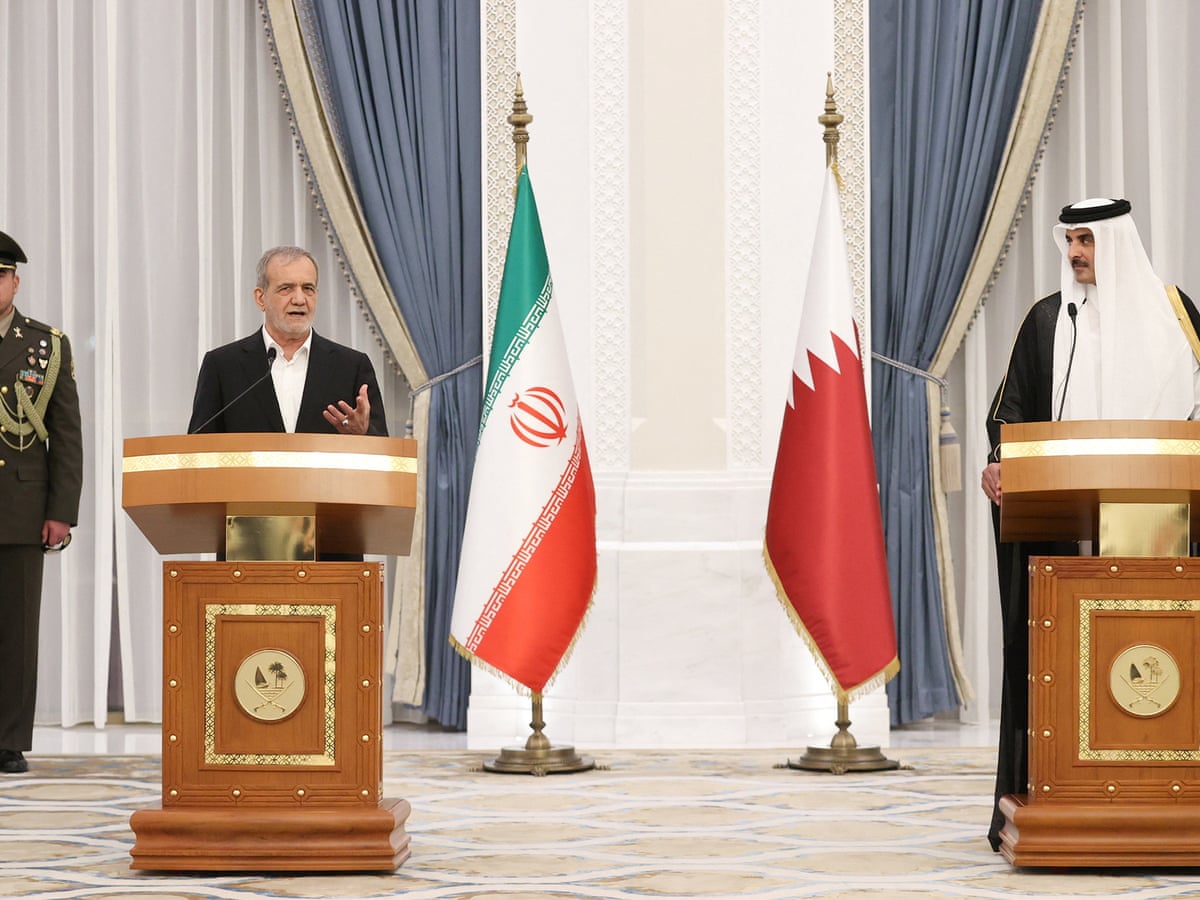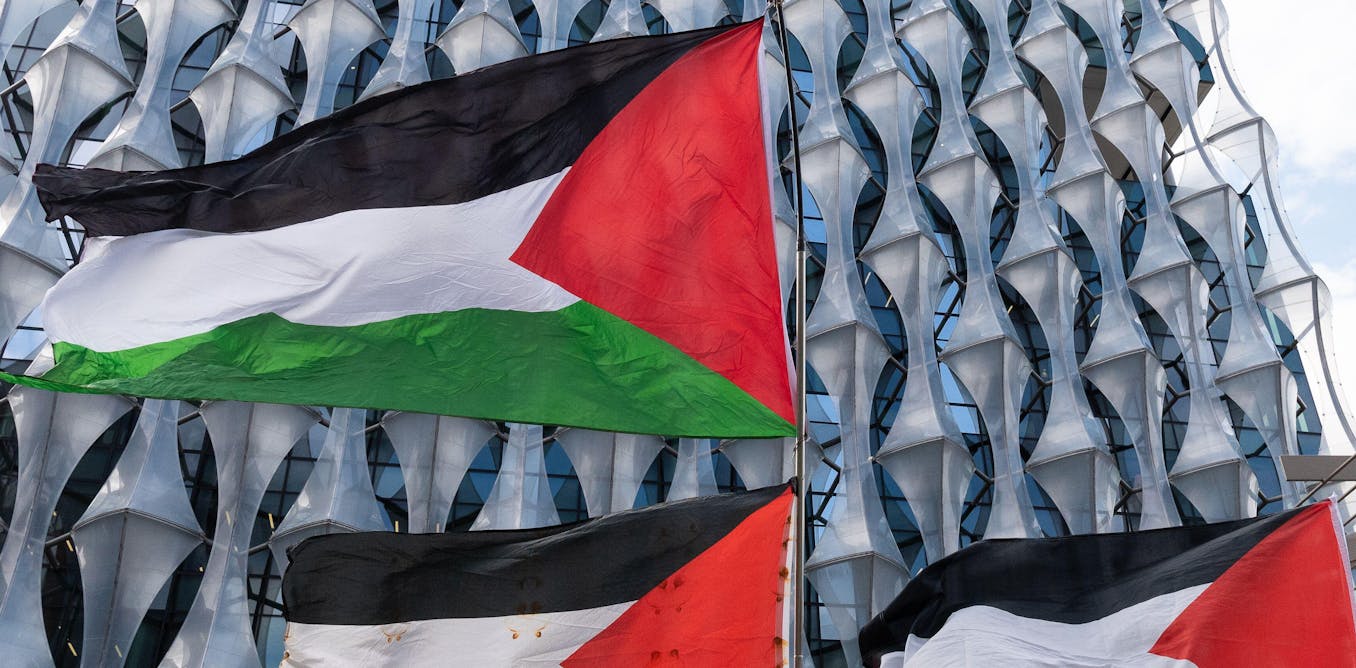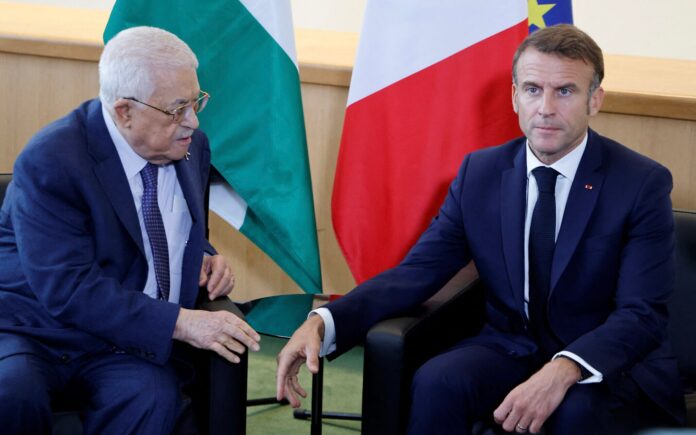Historic European Move on Palestinian Statehood
The recognition of a Palestinian state by France and the United Kingdom at the United Nations marks a watershed moment in the century-old Israeli-Palestinian conflict. For the first time, two major European powers have taken a bold diplomatic step, signaling their belief that the two-state solution must be revived before it collapses entirely.
The move comes amid the ongoing humanitarian crisis in Gaza, where thousands of Palestinians remain trapped in dire conditions. French President Emmanuel Macron, addressing the high-level UN conference on Palestine in New York, declared that “right must prevail over might.” His words reflect Europe’s growing frustration with the endless cycle of violence and deadlock.
Europe’s Diplomatic Gamble

The coordinated decision by France and Britain, backed by Saudi sponsorship, is an attempt to keep alive the long-fading vision of two states—Israel and Palestine—living side by side. European leaders argue this remains the only viable path to a fair and sustainable peace.
UN Secretary General António Guterres warned that without a two-state solution, the alternative is a one-state reality: continued Israeli control and the permanent “subjugation” of Palestinians. He strongly condemned collective punishment, starvation, and any acts resembling ethnic cleansing.
However, this recognition is more than symbolism—it is a gamble. By directly challenging Washington’s position, Europe risks alienating the one power that still holds decisive influence over the conflict.
Israel’s Anger and Threats of Annexation

Israel has reacted furiously, seeing the recognition as a reward for Hamas following its October 7, 2023 attacks and hostage-taking. Members of Prime Minister Benjamin Netanyahu’s coalition, particularly far-right ministers, are pushing for the annexation of parts of the West Bank—steps that would permanently eliminate the possibility of a Palestinian state.
Netanyahu’s government remains committed to expanding settlements and rejecting any concessions, while hardline voices openly advocate for the expulsion of Palestinians from contested areas.
Washington and Europe at Odds
The recognition has also exposed the deepest rift yet between the United States and its European allies over Middle East peace. Former President Donald Trump’s administration continues to strongly back Israel, dismissing European diplomacy as naïve and counterproductive.
In a symbolic snub, the US barred Palestinian Authority President Mahmoud Abbas from attending the UN conference in person, forcing him to deliver his remarks via video link.
This division underscores how little influence Europe now wields compared to Washington. While Europe frames itself as a mediator, the US remains the only actor with the leverage to pressure both sides effectively.
The Situation on the Ground
The recognition comes nearly two years after Hamas’s 2023 attacks, yet little progress has been made toward ending hostilities.
-
Israel has deployed additional divisions into Gaza, where airstrikes and ground assaults continue to kill civilians daily.
-
Hamas still holds nearly 50 hostages, some reportedly deceased.
-
The West Bank faces escalating settlement expansion and rising settler violence.
Europe argues that Israel’s military approach has failed, worsening civilian suffering and destabilizing the region further.
Macron’s Diplomatic Strategy
President Macron’s initiative aims to showcase diplomacy as an alternative to endless war. His strategy focuses on two steps: first securing a workable ceasefire in Gaza, and then reviving the two-state framework.
Crucially, the UN conference was co-chaired by Saudi Arabia and supported by the Arab League, signaling broader regional support. Arab states urged Hamas to disarm, hand over weapons to the Palestinian Authority, and accept that it cannot lead future Palestinian governance.
Macron believes this coordinated pressure could both incentivize Israel to reconsider negotiations and pave the way for Saudi-Israeli normalization—a long-sought goal for both Netanyahu and Washington.
A Risky Bet Without US Backing
Despite Europe’s efforts, analysts stress that without US involvement, meaningful progress is unlikely. President Trump remains firmly opposed to the recognition of Palestinian statehood and plans to present his own vision during upcoming meetings with Arab leaders at the UN.
The lack of coordination between Washington and European capitals highlights the fractured nature of current diplomacy. Meanwhile, former mediators such as Qatar have stepped back after Israeli strikes on Hamas officials inside its territory earlier this month.
Colonial Legacies and Historical Parallels
Both President Macron and UK Prime Minister Keir Starmer acknowledged their nations’ colonial pasts in the Middle East. They reminded the world that in 1948, after Britain’s withdrawal, the international community recognized the state of Israel. Today, they argued, Palestinians deserve the same acknowledgment of their right to self-determination.
For Palestinians, European recognition is welcome but insufficient. While symbolic, it lacks the decisive power to change realities on the ground. True statehood, they know, requires backing from the world’s dominant superpower—the United States.
Conclusion
The European recognition of Palestine represents a dramatic shift in diplomatic posture, underscoring growing frustration with Israel’s policies and America’s one-sided stance. Yet, without Washington’s involvement, Europe’s move risks being little more than a symbolic gesture.
For Palestinians, it is a reminder that while Europe may speak of justice and equality, the ultimate key to statehood still lies in the hands of the United States—and for now, President Trump appears unwilling to turn it.
Sources: BBC

